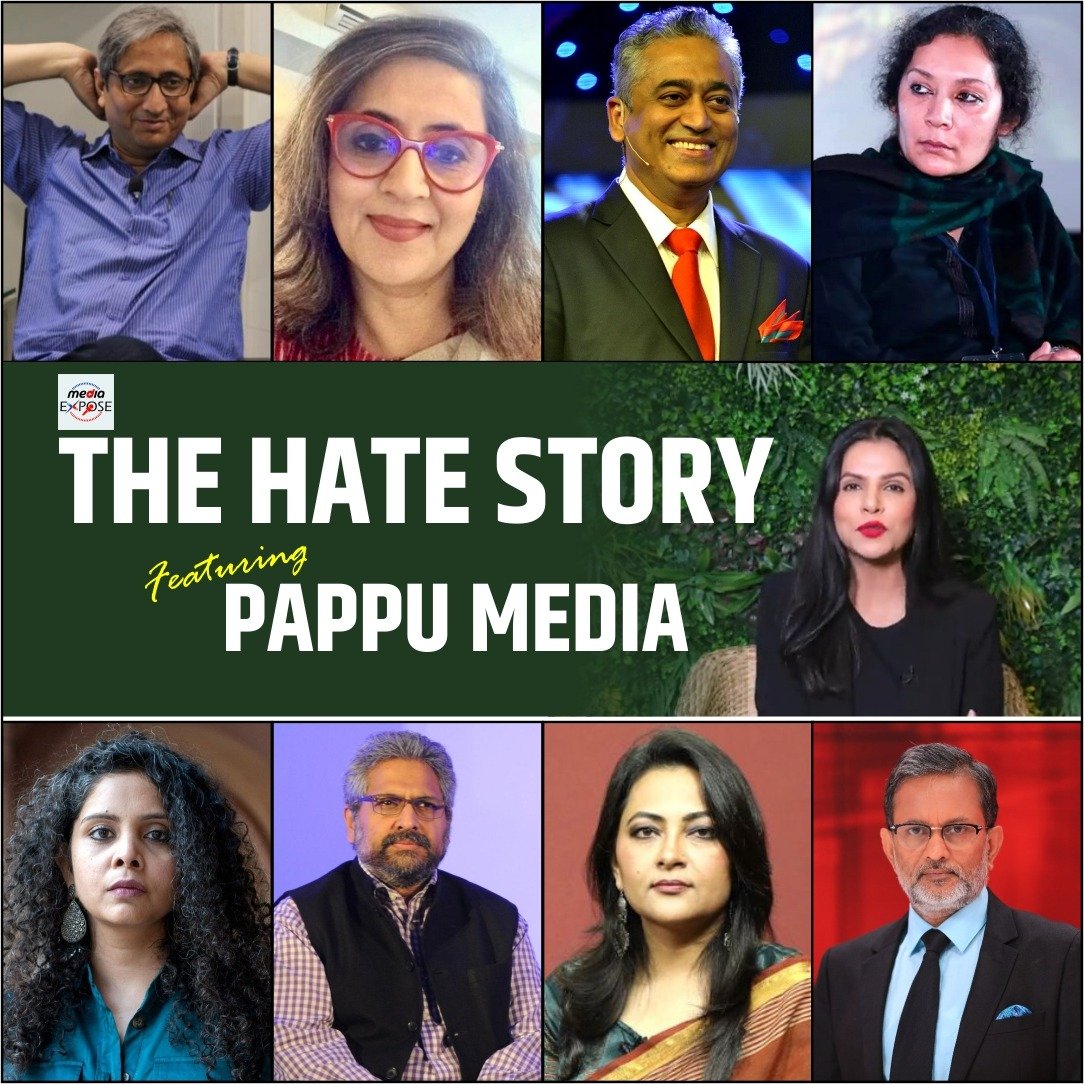
This is a text box

This is a text box
Pappu Media!
A bastion of intellectual theatrics, where every news segment feels like a sequel to Game of Thrones—minus the dragons but with all the fire-breathing. YouTube has now become their amphitheater of absurdity, where Adani’s indictment is dramatically crowned the “biggest scam in Indian history.” Apparently, this single event is set to topple governments, split the heavens, and usher in the long-awaited Rahul 89.0—India’s answer to an operating system update nobody asked for. Bravo, truly.
Leading this farce is Ravish Kumar, the self-styled messiah of moral journalism. In his latest video, he boldly imagines India extraditing Adani to the US, as if geopolitics operates on his personal fan fiction. One wonders if Ravish has a selective amnesia about India’s pending extradition requests—like that of Khalistani fugitive Gurpatwant Singh. But hey, when Soros is allegedly bankrolling your imagination, reality checks are mere inconveniences. Ravish even had the audacity to compare Adani to “out-on-bail” Congress duo, conveniently forgetting one is a businessman under scrutiny, while the other is a dynastic duo entangled in decades of corruption scandals. But why let facts ruin a perfectly good virtue-signaling session?
And irony, thy name is Ravish. A quick scroll through his timeline reveals a glaring omission: no mention of Congress-era classics like Bofors, AugustaWestland, or National Herald. Perhaps these scandals don’t fit the melodrama he reserves for his favorite punching bags. This is the same Ravish who earned notoriety during his NDTV days for passionately defending political patrons. Remember Nidhi Kulpati’s infamous slip, “Congress ko defend kar lena”? Turns out hypocrisy isn’t just an art—it’s a full-blown masterclass.
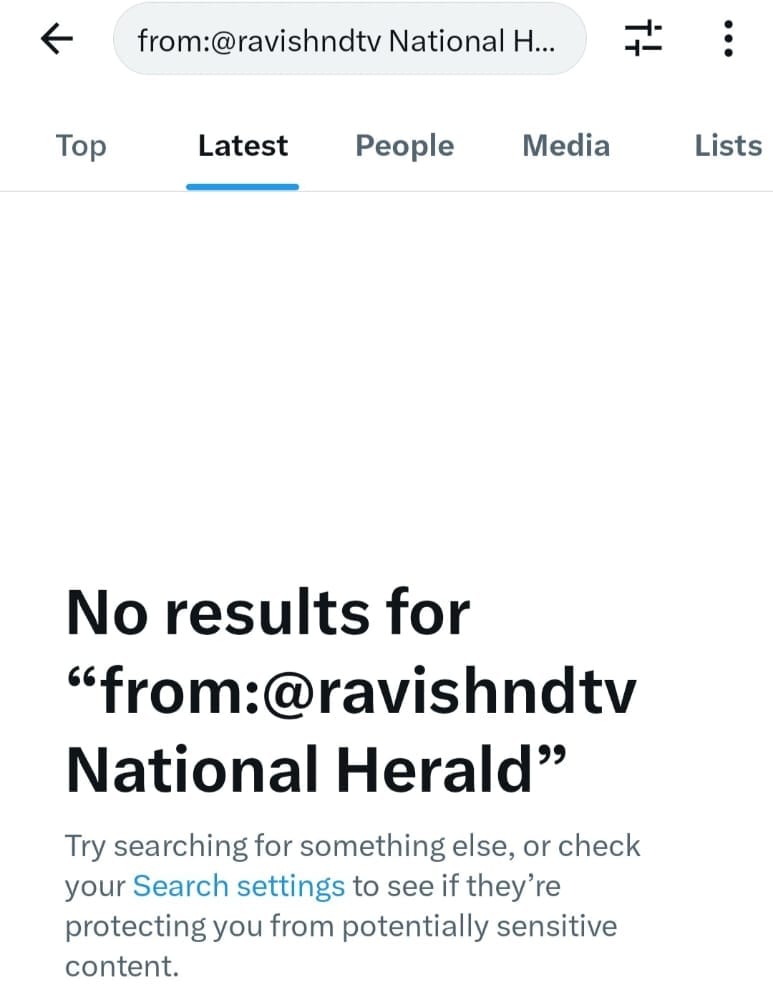
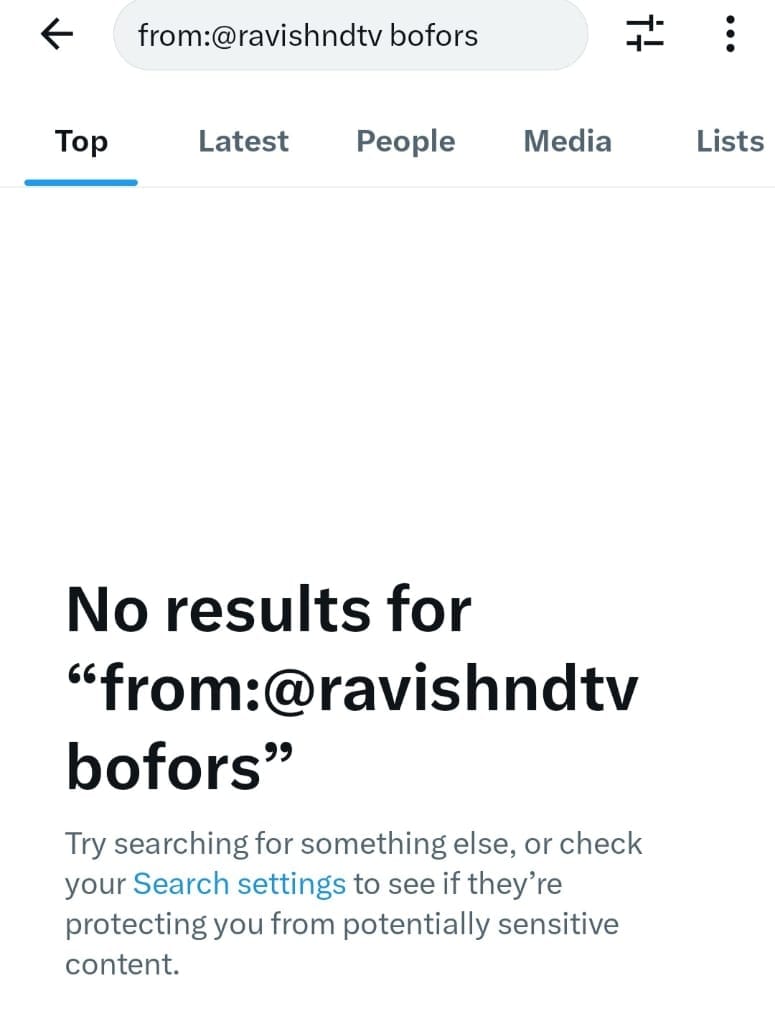
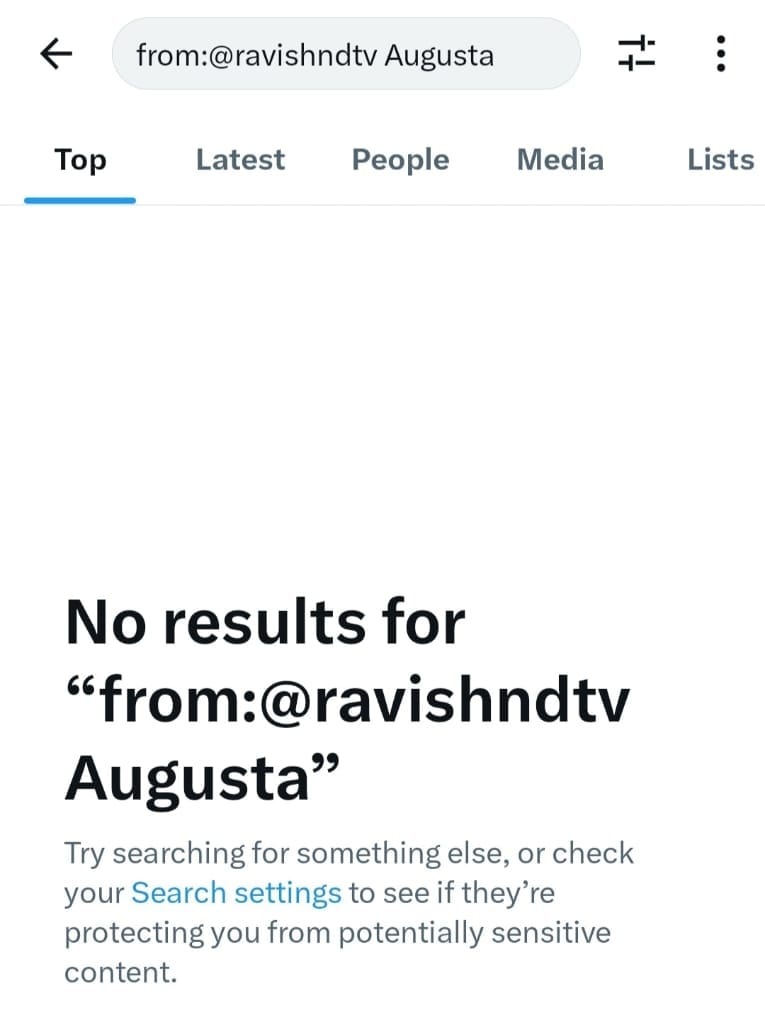
Enter the dynamic duo of Rajdeep Sardesai and Sagarika Ghose, the Bonnie and Clyde of media outrage. According to them, Adani is practically the Four Horsemen of the Apocalypse rolled into one. His strategic investments that counter China’s economic grip? Naturally, that’s a catastrophe in their anti-national playbook. Here’s a thought: Why doesn’t Ms. Ghose convince her boss, Mamata Banerjee, to ban Adani outright in Bengal? Go big or go home, right? But alas, logic is kryptonite to theatrics.
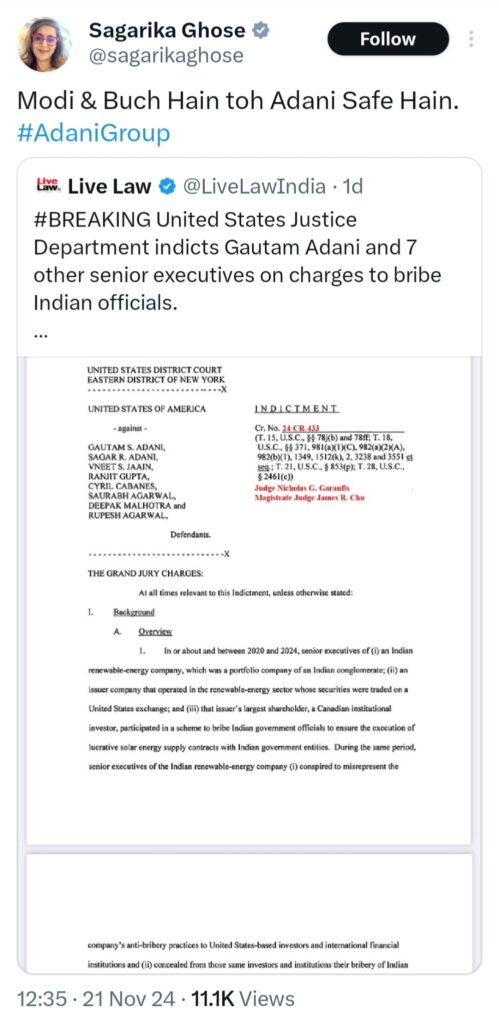
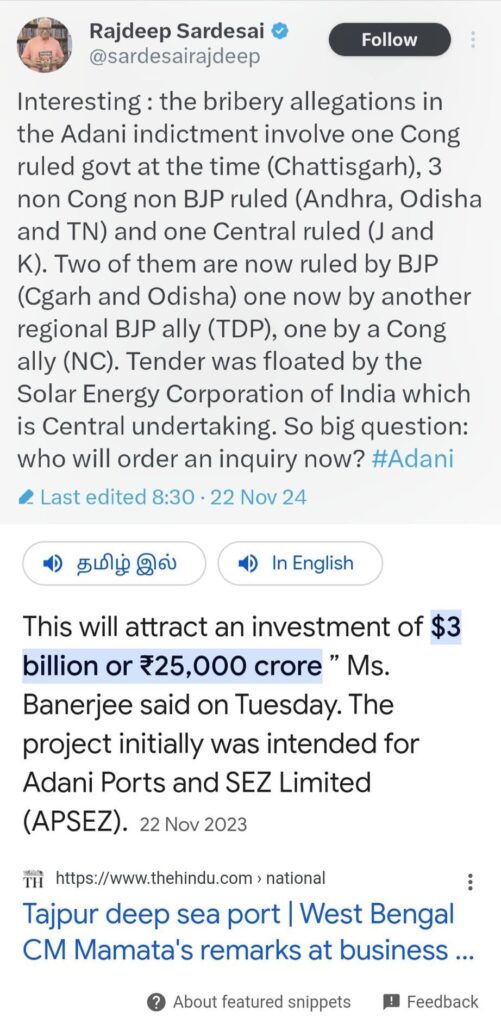
Let’s not forget Saba Naqvi, another shining star in the galaxy of “objective” journalism. True to form, she manages to connect Adani’s legal troubles to—you guessed it—the Muslim community. Truly, her mental gymnastics deserve an Olympic medal. But perhaps someone should whisper in her ear that the Waqf Board Bill she’s so worried about is moving forward, despite her conspiracy-fueled hysteria.
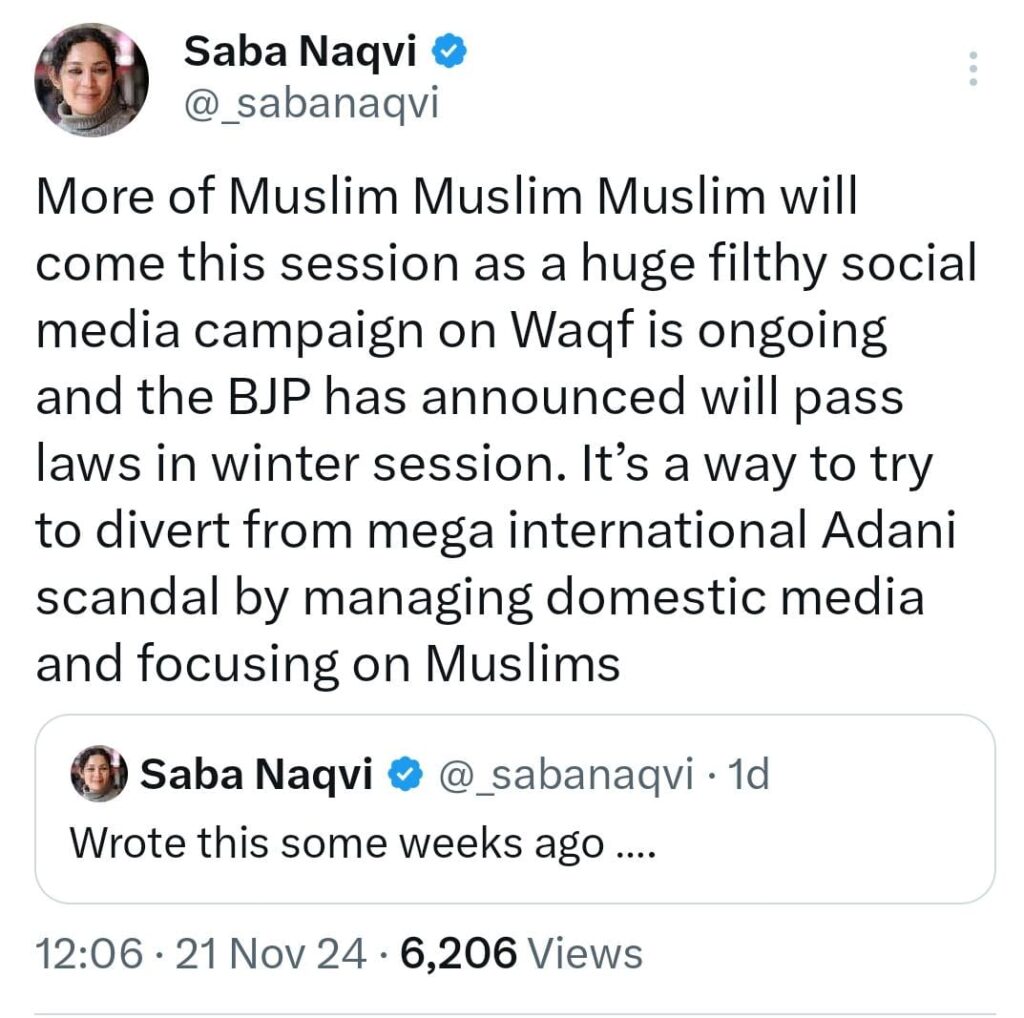
Meanwhile, as per American law Adani’s indictment can be termed as “short of a chargesheet,” but our Pappu Media has already fast-forwarded to his extradition, trial, and a teary farewell video. Their ability to bypass logic and jump to conclusions could put space agencies to shame.
Another Parliament session, another predictable assault on the Adani Group. It’s almost as if the Deep State, aided by its Chinese allies and their operatives in Indian politics, has institutionalized this routine attack. The question is—why always Adani? Is it personal? Or is there a larger game at play?
To answer, let’s revisit the G20 Summit, where PM Narendra Modi announced the ambitious India-Middle East-Europe Economic Corridor (IMEC). A direct challenge to China’s Belt and Road Initiative (BRI), IMEC seeks to establish vital trade routes between Asia and Europe, redefining global commerce. The corridor’s success is closely tied to India’s strategic partnerships and economic growth, which makes it a thorn in the side of China’s expansionist ambitions.
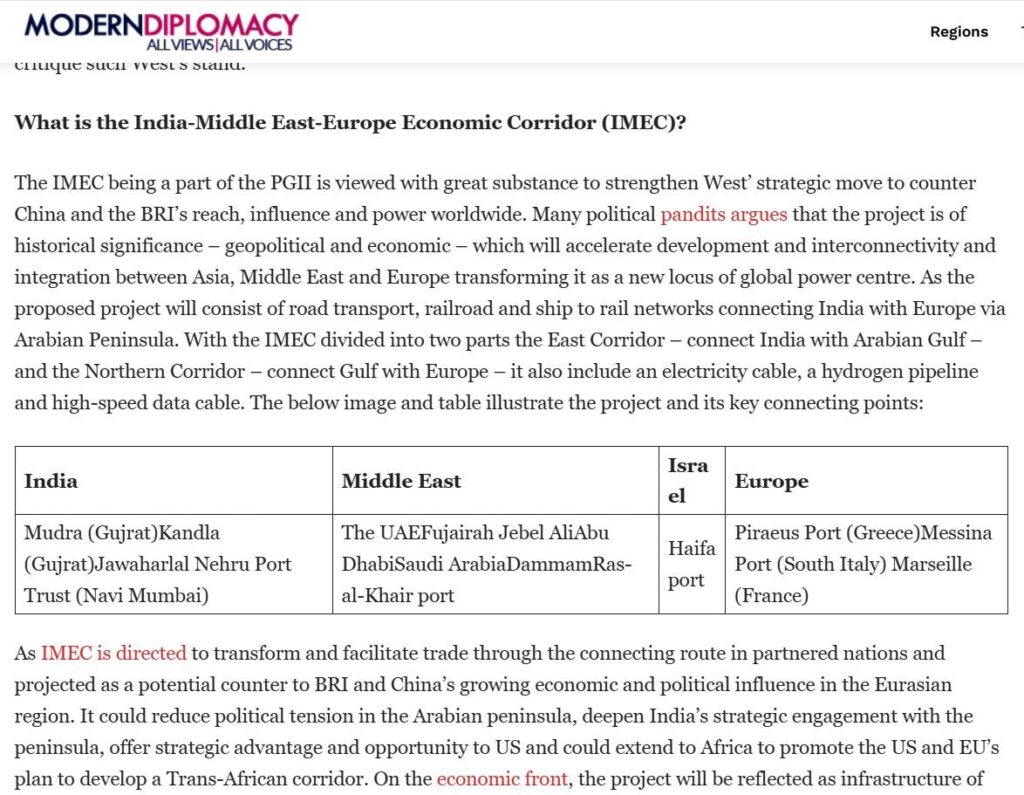
Central to this story is the Haifa Port in Israel, a critical link in the IMEC route. The Adani Group’s acquisition of this port directly competes with China’s Shanghai International Port Group, which manages the nearby Haifa Bayport. When Hindenburg’s “report” conveniently emerged to tarnish Adani’s reputation, it wasn’t hard to see the bigger picture. Coincidences of this magnitude don’t exist in geopolitics.
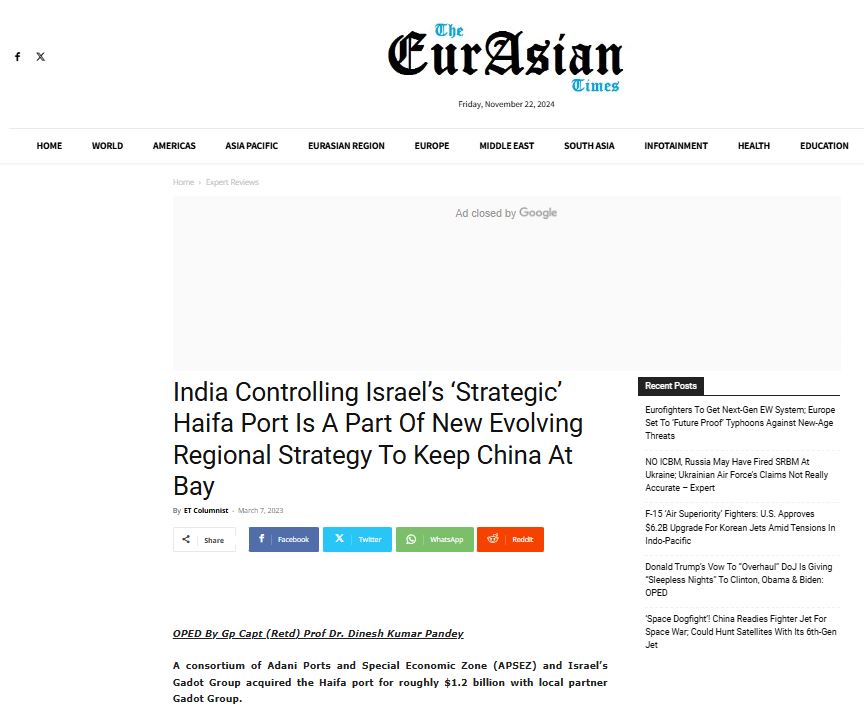
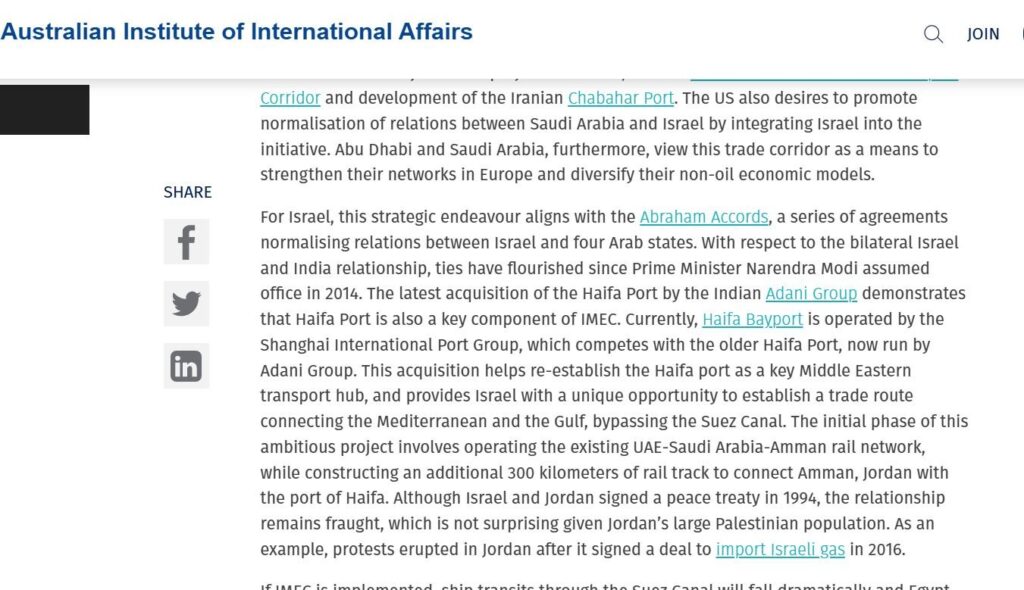
Senior lawyer and parliamentarian Mahesh Jethmalani recently called for an investigation into “certain Indian politicians” with suspicious ties to China. The identity of these individuals is no mystery. The leader of this group vanished on an undisclosed foreign trip while his party’s ties with the Chinese Communist Party are public knowledge. He has been spotted in secret meetings with Chinese diplomats, even as Indian soldiers faced off with Chinese troops in Galwan. Naturally, the sold-out media didn’t bother asking questions about these interactions.
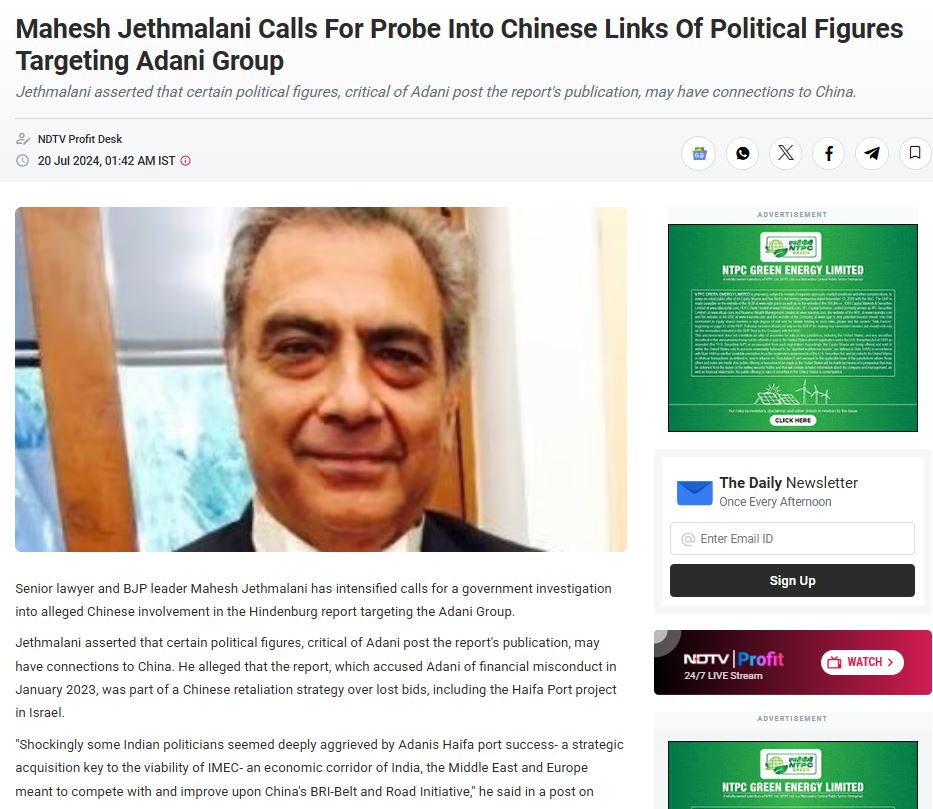
What has irked dragon for long is India’s continuous opposition of its BRI at all International forums. Recent one being at the SCO summit held at Islamabad, where India was the only country that voted against it.
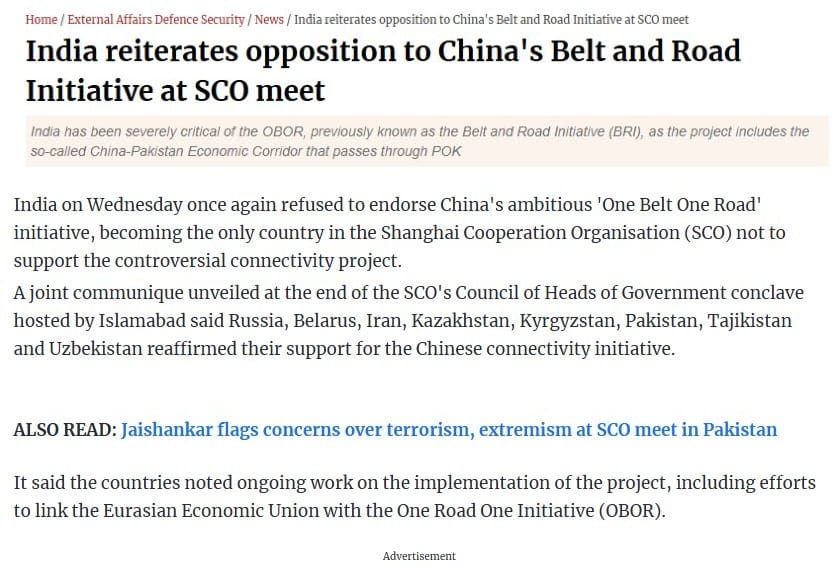
Then there’s the matter of Bangladesh. The Adani Group recently reduced power supply to the country due to non-payment of dues. This seemingly routine business decision has greater geopolitical undertones. Bangladesh’s democratically elected leader, Sheikh Hasina, has been under siege by Deep State-backed forces. In her place, Soros-funded interests are positioning Muhammad Yunus as a pliable alternative. The timing is no coincidence—Adani’s strategic decisions often seem to disrupt plans aligned with anti-India forces.
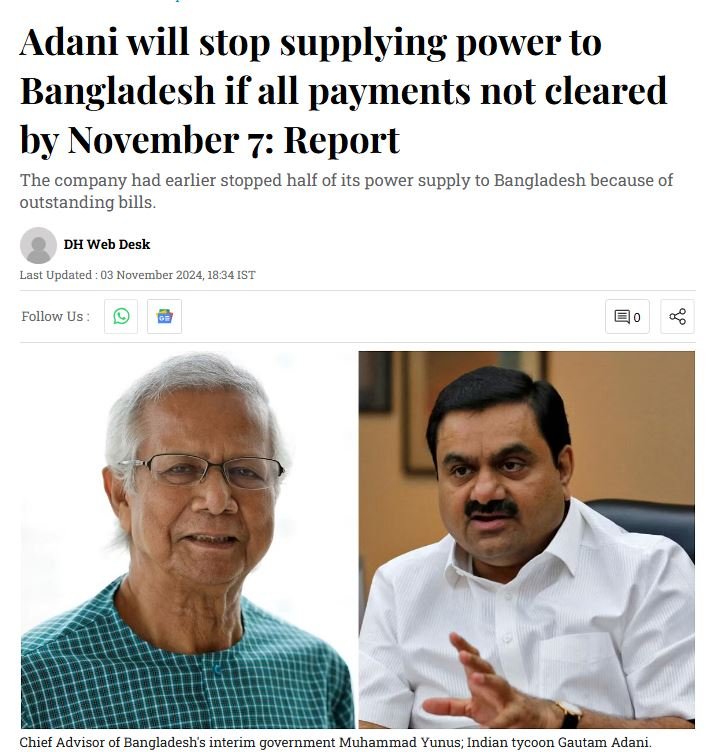
Ultimately, the Adani saga isn’t about him as an individual; it’s about India’s rise. Adani represents a nation defying the Deep State-China nexus and asserting its place on the global stage. For a media ecosystem still stuck in the cronyism of the 20th century, this evolution is unpalatable. After all, their glory days were when corruption was a family business, and journalism meant toeing the line of their patrons. The bitterness is understandable—but the circus? Unnecessary.
Watching the media coverage one can safely define Journalism as a profession where facts are optional and outrage is mandatory.